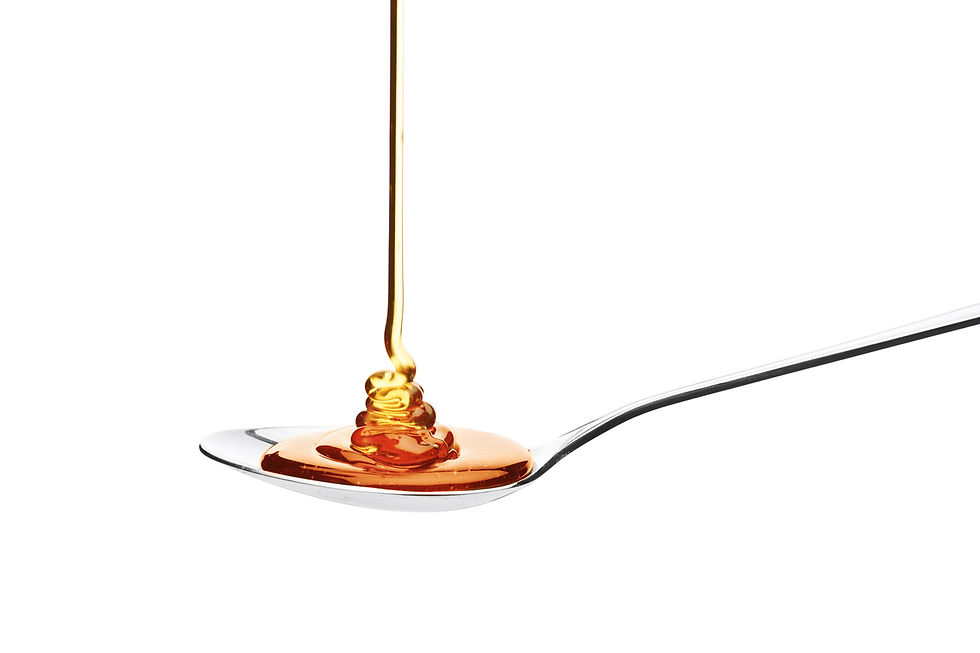Fever FAQ
- Nov 5, 2024
- 4 min read
Updated: Apr 16, 2025

Your child has been cranky all evening and doesn't want to eat. You check their temperature and you hear an ominous long beeping sound accompanied by an alarming flashing red screen. You try not to panic, but your mind starts to race... How high is too high? Do they need antibiotics? Is their brain going to boil? What about seizures? When do they need to see a doctor?
Let's set the record straight about fever in kids.
A fever is a normal, healthy part of a functioning immune system in response to an infection. It means their bodies are hard at work fighting off the germs that are making them sick!
The most common cause of fever in a child is a viral infection, like the common cold or flu.
Although some children with a fever do need to be seen by a doctor urgently (outlined below), most of the time they just need rest and plenty of fluids.
Fever medicines (ibuprofen and acetaminophen/paracetamol) do not help your child get better any faster (nor do they hinder recovery), but may help them feel better temporarily so that your child (and you!) can get some rest. They are not necessary if your child is clearly comfortable (e.g. sleeping or resting comfortably, playing, etc.). If you choose to give fever medications, follow the product instructions carefully. Expect the fever to return in 3-4 hours.
When does my child with a fever need to go to the Emergency Room?
1. Your child is less than 3 months old and has a fever of any duration.
2. Your child is unvaccinated, has immune system problems, or other complex or chronic conditions and has a fever of any duration.
3. You have recently travelled to a malaria-endemic region.
4. Your child has a fever for 5 days or more.
5. You are worried about dehydration (dry lips/mouth or noticeably less urine output than usual).
6. Your child is inconsolable or very sleepy/difficult to wake.
7. Your child is struggling to breathe, has noisy breathing, or is breathing faster than usual.
8. Your child has pale, purple, or cool skin.
9. Your child is confused or has a seizure.
10. Your caregiver intuition is telling you they need to be seen emergently.
You should take your child with a fever to see a family doctor/nurse practitioner (or walk-in-clinic/urgent care centre) within 24 hrs if:
1. Your child has a fever without any other symptoms at all. This might indicate the need for specific tests to try and determine the cause of the fever.
2. Your child has a fever plus a new rash.
3. Your child has ear pain.
4. Your child is complaining of throat pain or painful swallowing.
5. Your child develops a fever several days or weeks after the onset of a viral URTI (cough, runny nose, sore throat, sneezing, fever). This might indicate either a new viral infection or the development of a secondary bacterial infection like pneumonia or an ear infection.
Fever FAQ
Q: What is a fever?
A: A temperature of at least 38 degrees Celsius or 100.4 degrees Fahrenheit is a fever. Some consider 37.5 degrees Celsius to be a fever if measured in the axilla (armpit).
Q: What is the best way to measure my child’s temperature?
A: Underarm, oral, or rectal temperature measurements are much more accurate than forehead scanners or ear thermometers. However, it can be much easier for parents to use forehead or ear thermometers, especially for those with young children.
Q: How high is too high?
A: A high fever doesn’t necessarily mean your child has a more serious illness or is more likely to have a febrile seizure. It simply means your child has responded with a strong immune reaction to the infection (which may be either viral or bacterial). As outlined above, the duration of fever, as well as the child’s symptoms and behaviour, are more important than the height of the fever when assessing whether or not they need medications or hospitalization.
Q: If my child’s fever gets too high, won’t they be at risk for a seizure?
A: Some children (2-4%) have a genetic predisposition to febrile seizures, which are generally considered benign and cannot be prevented with anti-fever medications.
Q: My child’s fever doesn’t get better after I have given them fever medications. Should I worry?
A: Poor response to fever medication does not necessarily mean your child has a more serious illness. It usually means your child has mounted a strong immune response to the infection, you are under-dosing them, or the medications have started to wear off (they typically only last 3-4 hours).
Q: My child has a fever and won’t eat.
A: This is typical and will resolve when they are feeling better. Don’t try and force them to eat. Rather, offer them fluids such as commercially available oral rehydration solutions or 50:50 apple juice and water.
Q: Should I wake my sleeping child to give them fever medicine?
A: No! Your child (and you!) need rest more than they need fever medicines. If they are sleeping, that means they are comfortable and therefore don't require fever medications. Fever medications may help your child rest if they are having trouble settling or are waking frequently. Most of the time, however, young children just need extra snuggles (and caregivers need extra coffee!) until they recover.




Comments